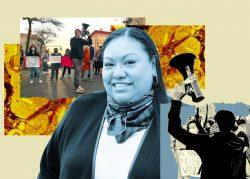U.S. Department of Transportation nominee Pete Buttigieg has urban highways in his crosshairs.
The mayor of South Bend and former presidential candidate proposed changing federal policy that encouraged highways to cut through minority communities and have depressed property values ever since, Streetsblog reported.
“It’s disproportionately Black and brown neighborhoods that were divided by highway projects plowing through them because they didn’t have the political capital to resist,” Buttigieg told CNN’s Jake Tapper on Sunday. “We have a chance to get that right.”
Whether that means he will seek to dismantle some of those roadways remains to be seen. He tweeted Sunday that minority areas have been “divided by highway projects or left isolated by the lack of adequate transit and transportation resources.”
Read more



He added, “In the Biden-Harris administration, we will make righting these wrongs an imperative.”
Transportation for America and Third Way recommended this month that the new administration establish a $5 billion grant program for states to dismantle downtown expressways. They recommend that the land created would be held in a trust to be given to those displaced by the roadways.
Examples of such roadways in New York City include the Gowanus Expressway in Sunset Park and the Cross-Bronx Expressway. The latter — which laid waste to thriving blocks across the Bronx — is likely here to stay, as it has become the predominant truck route to and from the city. But proposals to tear down the Gowanus date back to the early 1990s.
Decking over the Brooklyn-Queens Expressway trench in Brooklyn’s brownstone neighborhoods to build housing and parks has also been floated.
In his new role, Buttigieg would manage 55,000 employees and an $87-billion budget — though some critics have questioned his ability to do so, given his limited experience.
Buttigieg will also have a key role in shaping the Biden administration’s multi-trillion dollar infrastructure bill next year that could remake the downtown core of cities to reduce the effects of climate change.
[Streetsblog] — Sasha Jones
